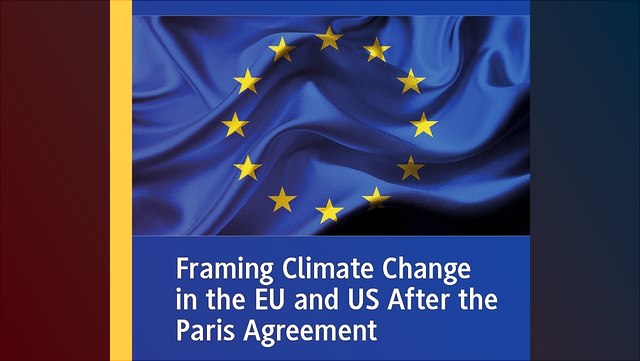How Ideas frame the Politics of Climate Change
Since 2020, the CSS proudly hosts PD Dr. Frank Wendler's DFG funded research project "How Ideas Frame the Politics of Climate Change: Discourse and Policy Development in the EU and US since the Paris Agreement".
The research project asks how ideas about climate change affect policy-making in their function as the foundation for justificatory and advocacy frames in processes on climate change governance. On a broader scale, the project speaks to three more general questions: How ideas and discourse matter for policy in the context of multi-level systems; how the politicization of public discourse affects governance beyond the nation state; and how the study of ideas and discourse can be integrated more convincingly into approaches and theories of policy-making and comparative political system analysis.
Empirically, the project focuses on the comparison between climate policiies of the EU and US since the 2015 Paris Agreement, with a specific focus on their multi-level structure and their respective legislative institutions.
The research interest of the project is based on two main premises:
- Ideas are essential for conceptualizing climate change and the temporal and institutional framing of climate policy. At the same time, their inherent (cognitive) uncertainty and (normative) ambiguity are a central source for political conflict within this policy-field.
- Ideas affect policy through political discourse related to specific political agents and embedded in institutional settings. In this context, legislative institutions are of particular importance through their function as an interface between political representation and justification, and decision-making about specific policy.
From this point of departure, the project investigates the following specific research questions:
- What discursive frames are used for the evaluation of climate change and the programmatic description of climate policy? How does the structure of this framing differ between various cases and institutional contexts?
- What role do central political actors have for communicating, contesting and connecting different and competing forms of discourse about climate change and policy?
- How do institutional features particularly of legislative institutions affect the interaction between public discourse on climate change and decision-making about related acts of specific policy?
In terms of theory, elements of framing analysis are combined with approaches from the policy analysis literature (particularly the Advocacy Coalition Framework) to develop and test hypotheses about the interrelation of ideas and discourse in the context of public controversy and the policy process.


